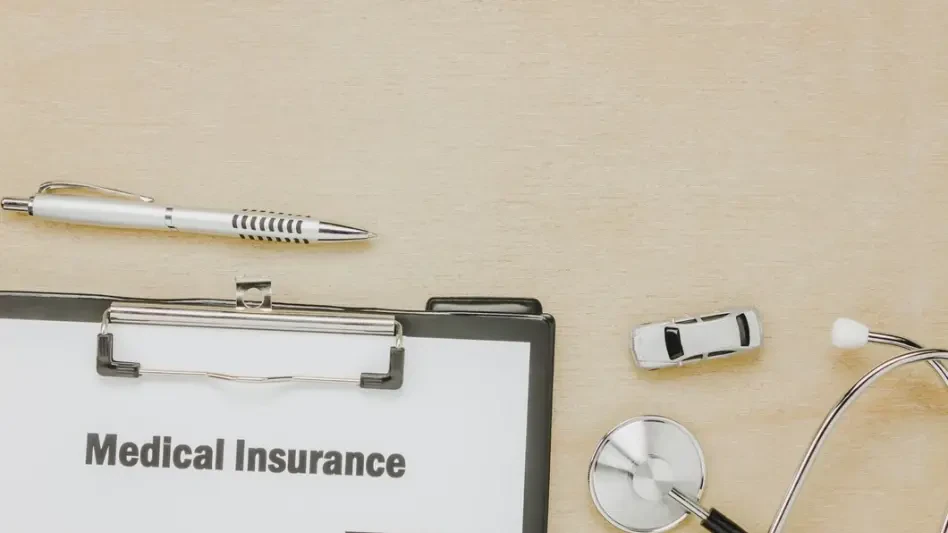Welcome to an insightful conversation with Faisal Zain, a renowned healthcare expert with deep expertise in medical technology. With years of experience in the manufacturing of diagnostic and treatment devices, Faisal has been at the forefront of innovation in healthcare. Today, we’re diving into the challenges families face when navigating insurance denials for critical preventive care, inspired by real-life stories of struggle and perseverance. Our discussion explores the intricacies of insurance policies, the importance of preventive services under current laws, and practical strategies for overcoming coverage obstacles. Join us as we uncover valuable insights and actionable advice for anyone facing similar hurdles in the U.S. healthcare system.
How does your background in medical technology give you a unique perspective on the challenges families face with insurance denials for essential diagnostic tests?
My work in medical technology, particularly in developing diagnostic devices, has given me a front-row seat to how critical early detection and preventive care are for patient outcomes. I’ve seen firsthand how tools like hearing tests can change lives by catching issues early, especially in children. But I’ve also witnessed the frustration when insurance companies deny coverage for these vital services, often due to policy loopholes or misinterpretations. My experience has shown me that the gap between medical necessity and insurance bureaucracy is a real barrier, and it drives me to advocate for better access and clarity in how these technologies are covered.
Can you walk us through the significance of routine diagnostic tests, like hearing screenings for infants, and why they’re considered preventive care?
Absolutely. Routine diagnostic tests, such as hearing screenings for infants, are crucial because they can identify issues before they become severe. For instance, early detection of hearing loss can lead to timely interventions that significantly improve a child’s development, communication skills, and quality of life. Under the Affordable Care Act, many of these screenings are classified as preventive care, meaning they should be covered without out-of-pocket costs for families. The idea is to prioritize early intervention over costly treatments down the line, but unfortunately, not all insurance plans interpret or apply these guidelines consistently.
What are some common reasons insurance companies deny coverage for preventive services that should, by law, be covered?
There are a few recurring reasons for these denials. First, there’s often a disconnect between what the law mandates and how an insurance policy is written or interpreted. Some plans have exclusions or limitations buried in the fine print that contradict federal guidelines. Second, coding errors or a determination that a service isn’t “medically necessary” can trigger a denial, even for recommended preventive care. Lastly, grandfathered plans—those predating the Affordable Care Act—may not offer the same protections, leaving families vulnerable. These inconsistencies create a frustrating maze for patients who are just trying to get the care they’re entitled to.
How can families better understand whether a specific service qualifies as preventive care under their insurance plan?
The first step is to dig into your plan documents and look for details on preventive care coverage. Websites like healthcare.gov also list services that should be covered without cost under the Affordable Care Act, which can serve as a benchmark. I’d also recommend reaching out to your employer’s HR department if you have job-based insurance—they often have direct lines to insurers and can clarify what’s included. If there’s any doubt, don’t hesitate to contact your insurance provider directly and ask for a written explanation. Knowledge is power here; understanding the rules gives you a stronger footing to push back if a claim is denied.
What’s the emotional and financial toll on families when they’re forced to fight for coverage of essential medical tests?
The toll can be immense. Financially, families often end up paying hundreds or even thousands out-of-pocket for tests that should be covered, sometimes maxing out credit cards or dipping into savings. Emotionally, it’s exhausting—parents are already juggling medical needs and daily life, and then they’re thrown into a battle with an insurance company. The stress of uncertainty, coupled with the fear of not being able to afford necessary care, can weigh heavily. I’ve heard stories of parents feeling helpless or overwhelmed, especially when they’re balancing work and a child’s health needs. It’s a burden no one should have to carry alone.
What practical steps can someone take to appeal an insurance denial for a preventive service?
Start by getting a clear explanation of why the claim was denied—look at the denial letter or explanation of benefits for specifics. Then, gather your evidence: medical records, test results, and any federal guidelines that support your case, like those from healthcare.gov showing the service is preventive. Most insurers have an appeal form or process outlined on their website or through customer service. Write a detailed letter explaining why you disagree with the denial, and include all supporting documents. If possible, get a letter from your doctor explaining the medical necessity. Be persistent—if the first appeal fails, try again or request an external review, which is often handled by an unbiased third party. And don’t miss deadlines; they’re strict and usually listed in your denial notice.
How can reaching out to an employer’s HR department make a difference in resolving an insurance dispute?
HR can be a game-changer, especially if your coverage is through your job. They often have direct relationships with insurance providers and can advocate on your behalf in ways that individual policyholders can’t. While they’re not legally required to help, many HR departments see the value in supporting employees—it’s part of retaining talent. In some cases, if the employer has a self-funded plan, they might even have the flexibility to adjust benefits or cover a service directly. Sharing your appeal documents with HR can prompt them to push the insurer for a second look or consider updating plan offerings for the future. It’s an avenue worth exploring if you’re hitting walls.
What’s your forecast for the future of insurance coverage for preventive care in the U.S. healthcare system?
I’m cautiously optimistic, but there are challenges ahead. On one hand, there’s growing recognition of the importance of preventive care—both for patient outcomes and for reducing long-term healthcare costs. Policies like the Affordable Care Act have laid a strong foundation, and I expect continued advocacy to close loopholes and ensure compliance. On the other hand, the complexity of insurance plans and the variability in how rules are applied remain big hurdles. I think we’ll see more technology-driven solutions, like apps or platforms, to help patients navigate coverage and appeals. But ultimately, real progress will depend on stronger enforcement of existing laws and greater transparency from insurers. I hope we’re moving toward a system where families don’t have to fight so hard for the care they deserve.









